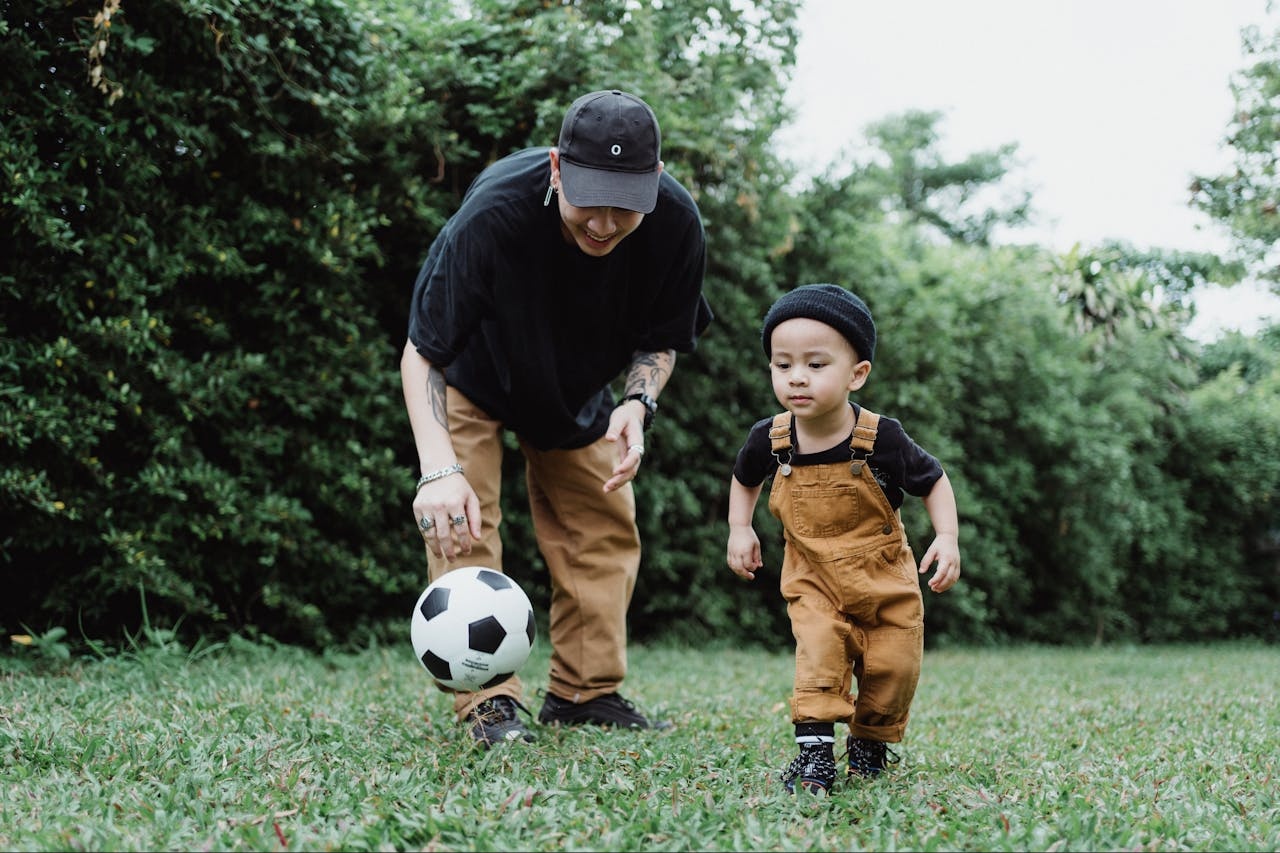Helping Kids Believe in Themselves: A Guide to Nurturing Self-Esteem

As parents, we all want our children to feel confident and happy with who they are. Building healthy self-esteem starts early—from the moment your baby first grasps your finger or takes those wobbly first steps. Every interaction you have with your child shapes how they see themselves in the world.
In our play therapy practice, we see firsthand how self-esteem affects everything from a child’s willingness to try new things to their ability to navigate friendships and handle disappointments. While some children seem to naturally radiate confidence, others need more support to develop a positive self-image.
Let Your Child Learn by Doing
Children build confidence through accomplishment. Whether it’s a toddler learning to stack blocks or a ten-year-old mastering long division, each success adds to their sense of capability. Start by showing them how to do something new, then step back and let them try, even if that means watching them struggle a bit.
When we work with children in play therapy, we often see breakthrough moments when they finally master something they’ve been working on, whether it’s expressing a difficult emotion through play or solving a problem with toy figures. That same principle applies at home. Resist the urge to jump in too quickly when your child faces a challenge. Instead, offer just enough support to keep them moving forward while allowing them to experience the satisfaction of figuring things out.
Focus on Effort Over Results
“You’re so smart!” might seem like positive feedback, but research shows that praising effort and progress builds stronger self-esteem than praising inherent qualities or outcomes. Try phrases like, “I noticed how you kept trying different ways to solve that puzzle,” or “You’re really sticking with piano practice even when it’s hard.”
This approach helps children understand that their efforts matter and that growth comes from practice and persistence. It’s something we emphasize when collaborating with parents—acknowledging the small steps forward can be just as powerful as celebrating big achievements.
Model Self-Compassion
Children are always watching us and learning. When you make a mistake, how do you respond? Do you criticize yourself harshly, or do you model self-compassion? Try narrating your thought process: “I forgot to send that email, but everyone makes mistakes. I’ll set a reminder for tomorrow.”
Your attitude toward everyday tasks matters too. When you approach chores or responsibilities without constant complaining, you teach your child that taking care of responsibilities is just part of life, not something to dread or rush through.
Build on Strengths While Acknowledging Struggles
Every child has unique strengths and interests. Maybe your child isn’t the fastest reader, but has an amazing ability to build elaborate LEGO creations. Perhaps they struggle with math but show incredible empathy toward others. Focus on providing opportunities for your child to explore and develop their natural interests and abilities.
When struggles do arise, they will acknowledge them honestly while maintaining confidence in your child’s ability to grow. Instead of dismissing their frustration with “You’ll be fine,” try “I can see math homework is really tough tonight. Let’s take a break and come back to it. Remember how you felt this way about reading last year, and look how much you’ve improved?”
Foster Connection and Contribution
Self-esteem in children flourishes when they feel connected to others and know they can make a positive difference. Encourage friendships with peers who are kind and supportive. Talk about what makes a good friend and help your child recognize when relationships feel good versus when they feel draining.
Give your child age-appropriate ways to contribute at home and in the community. Whether it’s feeding the family pet, helping a younger sibling, or participating in a neighborhood cleanup, these experiences show children that their actions matter and that they’re valuable members of their family and community.
If you notice your child consistently struggling with self-esteem despite your efforts, play counseling can help you. Reach out to learn more.

